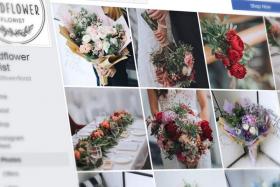Only 13% of family businesses here beat third gen curse
Survey says only 13% of family businesses here survive to the third generation. Three family businesses share their stories
For nearly five decades, Mr Chen Foon Kee has devoted himself to Chun Mee Lee Rattan Furniture, which was started by his father.
His father was struck with a debilitating illness, forcing him to take over the shop in 1969.
Now a year shy of 70, Mr Chen is wondering what he can do with the 69-year-old business - a dying trade that is time-consuming and labour intensive.
"The shop has been around for so long, and there are some results," Mr Chen told The New Paper in Mandarin, referring to how the business has managed to stay afloat after all these years.
LIFESPAN
"But everything has a lifespan, and the shop does not need to stay forever."
Mr Chen's predicament is what studies in recent years have described as the third-generation curse.
It refers to family businesses that find it difficult to find third-generation successors.
A survey of more than 100 successful family businesses in Singapore published by KPMG and CPA Australia in March found that only 13 per cent of family businesses survive to the third generation.
Globally, only 12 per cent of family businesses make it to the third generation, a 2016 PwC survey has found.
More than half the respondents cited the challenge of attracting and retaining talent as the most important issue.
Mr Melvin Yong, the Singapore country head at CPA Australia, said: "It is critical for founders of the business to develop leaders who will run the business, and not just inherit it."
As one of a handful of craftsmen here who can still repair rattan furniture, Mr Chen earns enough to get by after settling the rent.
There is still scope for growth - his shop has been featured in Home & Decor magazine and some lifestyle websites as the go-to place for all things rattan.
But Mr Chen said the bulk of his business comes from repairing rattan furniture.
The father of three said his children, who are in their 30s and 40s, have their own careers and are not likely to take over the business.
And he has no wish to force it on them, as he himself was a reluctant successor.
"I have already been subjected to the same circumstances. (Taking over the shop) wasn't what I wanted, but I had to do it because of circumstances. So I won't subject my children to this. My wish is for them to pursue what they want," he said.
Selling the business does not seem like a viable option either.
"In this industry, you have to work long hours, but the pay is not high. Today, people want to earn a lot in a short period of time," said Mr Chen.
"Who would want to buy over a business like mine?"
No feet of clay for granddaughter in pottery business
On her own accord, Miss Stella Tan, 26, returned to Thow Kwang Pottery Jungle at a time when the future was uncertain for the family business.
Set up by her grandfather in 1965, it was supposed to move out of its premises off Jalan Bahar in January 2013.
The lease was extended - first for two years until 2015, then for a three-year term that can be renewed twice.
Miss Tan, whose uncle runs Thow Kwang now, told TNP: "The second generation had been fighting to preserve the dragon kiln and pottery jungle. The future was uncertain for them."
HOMECOMING
After working in a pastry kitchen, then a cake customisation business with a friend, and finally in administration, Miss Tan initially returned to Thow Kwang to see how she could help.
It turned out to be a homecoming of sorts.
"Growing up here, I've seen a lot. My uncles, aunts and parents spent most of their days working and expanding the business, and went through the good and bad days together.
"When I was young, my uncle would educate us on the hard work my grandparents had put in to sustain this business. I was browsing through photos of the old days and yes, I realised how fortunate I am to be here," she said.
As studio manager, she learnt the ropes from her aunt, from packing the kiln to glazing pots.
As the only third-generation member in the business, she breathed life into what used to be seen as old-fashioned.
First, she created an online presence for the business by regularly updating its Facebook page and Instagram.
Then, she started hawking her ceramic wares at art markets to create awareness about Thow Kwang's workshops.
Her crafts proved to be a hit and over time, drew more people to the pottery jungle. Today, Thow Kwang has over 6,000 likes on Facebook, up from the initial hundred-odd.
She used to worry about what will happen once the novelty of pottery wears off, but after a few years of fretting, Miss Tan thought it was best to let go.
"Being the first third-generation, it is stressful to start something new as I am afraid to fail. But full support from the family pushes me to achieve what I think works for the business," she said.
"I believe in doing the right thing, and nothing will go wrong."
As for who will eventually take over the business, Miss Tan said this topic was brought up only once when she was still a polytechnic student.
Adding that she is not ready to talk about it now with her family, she would only say: "Maybe when the time is right."
25-year-old helps his parents' flower business bloom
He saw his parents' flower business decline to just single-digit sales a day.
And they were resigned to turning their seven-year-old Windflower Florist at Loyang Point to a gift shop after the mall was renovated.
But Mr Stanley Tan, 25, refused to believe that it was the end of the road for the shop.
The mass communication diploma holder told TNP: "In secondary school, I was already selling roses in a pushcart.
"When I went on to polytechnic, I took roses in a cart to sell as well."
He saw potential in the business. After completing his national service 2½ years ago, he persuaded his parents to let him take over the business.
The timing was right - a new wave of bespoke florists had just taken over traditional florists in the market.
But the learning curve was steep. "I've never really done flowers before.
"But I am bullheaded. I plunged straight into it. I had many quarrels with my mum on the design aspect," Mr Tan said, adding that his mother had taught him the basics of floral arrangement.
He often referred to Instagram for inspiration from established florists.
EVERYDAY BOUQUETS
"I visited the flower nursery to understand the flowers and talked to the suppliers to build a relationship.
"Because my direction for the business is to make everyday bouquets, I needed to understand what flowers are available all-year round," he said.
With the help of his army buddy turned business partner Charles Wong, Mr Tan gave Windflower Florist a facelift - an online presence, rustic arrangements and creative marketing efforts.
His efforts finally bore fruit when sales started to pick up.
Today, besides the Loyang Point shop, Windflower Florist has an office space and a team of eight. Just in everyday bouquets alone, there is a 1,000 per cent increase in daily sales, said Mr Tan.
His parents, who now man the shop space, are pleasantly surprised by the flourishing business but also tired out by the volume of orders.
"We have to stay up for three days and three nights, crafting the bouquets to make sure they go out. That is quite new to them," said Mr Tan.
Now, he is looking at diversifying the business to stay relevant.
"Flowers are just a medium to branch out to many other things, like styling and the lifestyle industry," he said.
Get The New Paper on your phone with the free TNP app. Download from the Apple App Store or Google Play Store now






